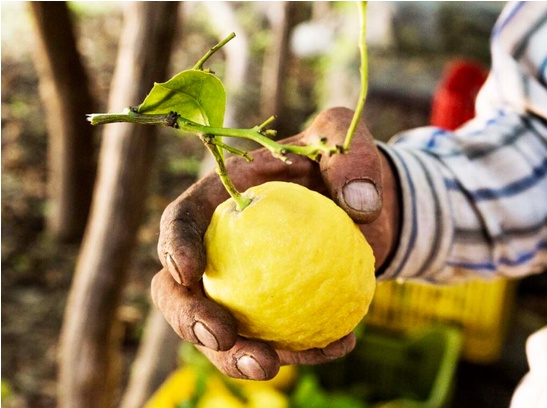Introduction:
Nestled along the stunning Amalfi Coast of Italy, a hidden gem thrives under the Mediterranean sun: the Amalfi lemon. Renowned for its vibrant color, intense aroma, and unparalleled flavor, the Amalfi lemon holds a special place in Italian culinary tradition. In this exploration, we uncover the rich history and cultural significance of the Amalfi lemon, tracing its journey from orchard to table.
A Land of Sunshine and Citrus:
The Amalfi Coast boasts a unique microclimate characterized by abundant sunshine, mild temperatures, and fertile soil—ideal conditions for cultivating citrus fruits. Dating back to ancient times, citrus cultivation has been a cornerstone of the region's agricultural heritage, with lemons playing a starring role in the local economy and cuisine.
The Amalfi lemon, known scientifically as Citrus limon 'sfusato amalfitano,' is prized for its distinctive elongated shape, thick peel, and intense aroma. Unlike its counterparts, the Amalfi lemon thrives in the rocky, terraced slopes of the coast, where it basks in the Mediterranean sun and absorbs the mineral-rich soil, imparting a unique flavor profile that sets it apart from other varieties.
Cultural Heritage and Tradition:
The cultivation of Amalfi lemons is deeply ingrained in the cultural heritage and tradition of the region. For centuries, local farmers known as "limonaioli" have tended to the lemon groves with meticulous care, passing down time-honored techniques and knowledge from generation to generation.
The annual lemon harvest, which typically takes place between February and October, is a time of celebration and community gathering. Families and neighbors come together to handpick the ripest lemons, working tirelessly to ensure a bountiful harvest that will sustain them throughout the year.
In addition to its culinary significance, the Amalfi lemon plays a symbolic role in local festivals and traditions. From the "Sagra del Limone" (Lemon Festival) to the vibrant processions of the "Festa di Sant'Andrea" (Feast of Saint Andrew), lemons take center stage in the colorful pageantry and festivities that define life on the Amalfi Coast.
From Orchard to Table:
The journey of the Amalfi lemon from orchard to table is a testament to the dedication and craftsmanship of the local artisans who bring it to life. After harvesting, the lemons are carefully sorted and graded according to size, shape, and ripeness.
Once selected, the lemons are hand-processed to extract their precious juice, which serves as the foundation for a myriad of culinary delights. From refreshing lemonade and tangy sorbets to zesty pasta sauces and savory seafood dishes, Amalfi lemons lend their vibrant flavor and aromatic essence to a wide range of culinary creations.
In addition to their culinary uses, Amalfi lemons are prized for their aromatic peel, which is used to infuse oils, flavor liqueurs, and garnish desserts. The peel is carefully removed using traditional methods and dried in the Mediterranean sun, preserving its natural oils and fragrance.
Conclusion:
The story of Italy's Amalfi lemons is a tale of sunshine, tradition, and culinary excellence. From their humble origins in the sun-drenched orchards of the Amalfi Coast to their transformation into culinary treasures beloved by chefs and food enthusiasts around the world, Amalfi lemons embody the essence of Italian gastronomy and culture.
As we savor the vibrant flavor and aroma of Amalfi lemons, let us also celebrate the rich heritage and tradition that have sustained their cultivation for centuries. Whether enjoyed in a refreshing glass of lemonade or as a key ingredient in a gourmet dish, the Amalfi lemon invites us to taste the sunshine and savor the simple pleasures of life along the Mediterranean coast.


No comments yet